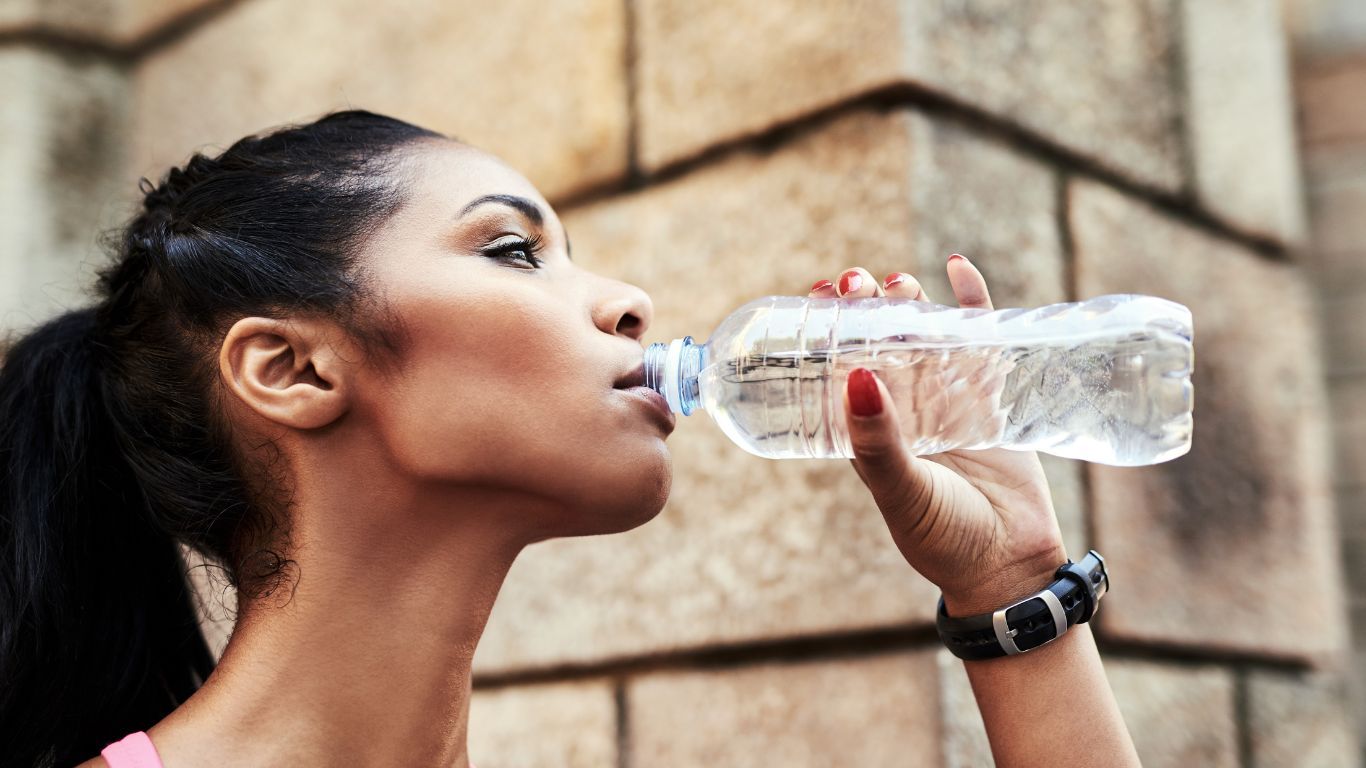
For people who are yet to discover the power of regular self-care for themselves, the easiest strategy is usually to start slow, with some basic wellness initiatives and Self care ideas. Some people simply spend a few minutes each day relaxing and controlling their breathing, while others focus on doing more of the things they enjoy, such as singing along to their favorite songs or watching the sunset at their favorite park.
Below are 10 simple and valuable self-care ideas you can implement each day to improve your overall well-being:
1. Go For a Walk
Walking might not seem like the most obvious option when it comes to self-care ideas, but it delivers a host of benefits to your mind and body. A regular walk gets you moving, without requiring a significant amount of intense exercise. It’s also ideal for people of any age and fitness level.
To get the most of your daily walk, try to take advantage of the great outdoors. Walking out in nature, whatever the weather serves various purposes. First, it helps your physical health, by improving cardiovascular health, promoting weight loss, and reducing the risk of various ailments. You can walk as far as you like, at a brisk or slow place, and explore walking with loved ones if you like company.
Furthermore, walking outdoors also exposes you to the healing benefits of fresh air, nature, and plenty of vitamin D, which bolsters the immune system and keeps bones healthy. A walk can even be a fantastic way to release stress and unwind if you’re feeling overwhelmed in your life.
2. Implement a Bedtime Routine
Good sleep hygiene is a must for effective self-care. The body and mind rely heavily on sleep to function optimally. If you’re not getting enough rest, you’re likely to be more emotional, less capable of dealing with stress and anxiety, and more fatigued throughout the day.
Setting a sleep schedule is a good way to get your body into the routine of winding down at a set time every night. It can also help to ensure you wake up feeling refreshed each morning. Start by defining how much sleep you actually need (often between 7 and 9 hours) and determine when you need to fall asleep to wake up fully rested in time for your routine.
Around an hour before you need to fall asleep, look for ways to relax, unwind, and get your body ready for rest. You can consider taking a hot bath to relax your muscles, drink some relaxing chamomile tea, or even listen to music. Avoid technology and social media, as they can both keep the mind active and make it harder to sleep.
3. Make Time for Something that Makes You Happy
Some of the best self-care ideas are often the simplest. You need small pockets of joy throughout the day. We all have busy schedules packed with things we need to do, such as caring for family and pets, or going to work. However, a truly nurturing and happy life requires us to find some time for ourselves as well.
Choose an activity you’d like to do each day, and dedicate at least 30 minutes to whatever this may be. You may decide you want to watch a TV show, listen to an album, read your favorite book, or just take a soothing bath. This all-important “me” time will give you an opportunity to listen to your body and address your own mental and physical needs.
The more you begin making time for yourself, the easier it will be to make self-care a consistent part of your routine. Looking after yourself will make you more resilient, more capable of dealing with challenges, and give you a better overall quality of life.

4. Write in a Journal
Journalling has become one of the most commonly referenced self-care ideas among celebrities and influencers in the modern world. One of the biggest challenges many of us face when looking after ourselves, is we don’t know exactly what we need to feel happy and complete. We’re used to ignoring our inner voices and demands in favor of following a reactionary routine.
With a journal, you can more easily organize your thoughts, set goals, and even solve common problems which might be causing stress and anxiety. One good option is to start writing down your thoughts and feelings each morning, so you can start every day on a fresh slate.
Alternatively, you can try journaling as an activity in your sleep hygiene routine, writing down all your thoughts, ambitions, and concerns before you settle down to rest. This can assist with getting everything you’re concerned about off your mind, so you can unwind.
5. Improve Your Diet
Eating properly is one of the foundational elements of good health, and something we should be focusing on every day. Take the time to get to know your nutritional needs. You can use a DNA test from CircleDNA to find out what kind of essential nutrients and vitamins you might be struggling with, as well as the kinds of foods you’re most likely to be sensitive to.
For instance, if you discover you’re particularly sensitive to caffeine, you can consider reducing your intake in the afternoons, so you’re less likely to experience insomnia. A good way to set yourself up for success with a healthy eating strategy is to set some time aside for planning your meals at the end of each week, focusing on the kinds of nutrition you need to reach your wellness goals.
When you’re actually eating your food, focus on being mindful, blocking out distractions and paying attention to how the food tastes, when you feel full, and what you enjoy. This will reduce your risk of over-eating, and can give you an insight into the dietary choices that work best for you.

6. Stay Hydrated
One of the most common self-care ideas recommended by all kinds of medical professionals is staying hydrated.
When you’re hydrated, you simply feel better. For example, headaches and brain fog often stem from being dehydrated.
It’s easy to forget to drink enough water when you’re following a busy and hectic schedule. However, water makes up the majority of our bodies, and is crucial in virtually every activity we do.
Without adequate water in your routine, you’re more likely to experience issues with excess hunger, fatigue, and general unhappiness. Alternatively, if you drink regularly, your digestion system will work better, your body will be more capable of transporting nutrients around the body, and you should have more energy.
Try keeping a bottle of water with you at all times and making a habit of taking a sip every so often, even if you don’t feel thirsty. Often, by the time you actually start to notice the symptoms of thirst, your body is already entering the early stages of dehydration. You can consider infusing your water with fruits and herbs for extra flavor if you don’t like the taste.
7. Find Your Stress Buster
Stress is a common part of life, and can be a valuable physiological response at times. According to the APA, around 34% of adults experience more stress on a yearly basis. Stress levels around the world have been increasing consistently in recent years, in part as a result of the pandemic.
Learning how to manage stress doesn’t necessarily mean you need to avoid the experience at all costs. Instead, the key to success is learning how to manage your levels, so you can use stress effectively, when necessary (as a motivator), and let go of the tension when you need to.
There are various different ways to handle stress, depending on your needs. Some people find it useful to engage in short bursts of intense exercise, to transform cortisol into adrenaline and make the most of their energy. Others enjoy meditation, yoga, or simply following guided therapeutic or relaxation sessions with videos on YouTube.
8. Practice Mindfulness
Becoming more mindful can help you enhance all kinds of self-care ideas. When you practice mindfulness, you bring your attention to what’s happening in the current moment, without judging your reactions, thoughts, or feelings.
Mindfulness helps us to understand what scares us, or causes anxiety, and what we need to do to push beyond our comfort levels and access new opportunities. Mindfulness actively changes your brain, allowing you to recognize all kinds of emotions in a safe and stress-free way.
Practicing mindfulness allows you to understand yourself better, by paying attention to the signals of your mind and body. However, it can also be an essential tool in developing empathy and emotional intelligence. A good level of mindfulness can improve your relationships by making it easier to connect with and understand other people.
9. Connect With Others
The digital world has introduced us to an era where face-to-face interactions and experiences are less common than they once were. Today, you don’t necessarily need to hear another person’s voice to communicate with them, or visit someone in-person for a conversation.
While this opens the door to a more connected global community, it also means many of us are spending more time feeling isolated and disconnected from the rest of the world. According to a Harvard report, relationships are one of the key contributors to happiness and good health. Taking some time to nurture your relationships, by picking up the phone, talking to someone over a video chat, or meeting in person, is crucial.
Where possible, try to find opportunities to be around others when you can. Hug your partner, spend time with your children, or visit a friend for a coffee break. When you can’t get out of the house, find another way to stay connected so you can minimize feelings of isolation.
10. Set Healthy Boundaries
One of the best self-care ideas often overlooked by people in today’s busy world, is setting healthy boundaries. Practicing mindfulness and learning how to understand yourself and your needs should place you in a position where you can better understand what you’re comfortable with, and what you don’t want to experience.
Healthy boundaries prevent us from pushing ourselves beyond our limits too regularly. They’re also an important tool for building good relationships, as they push us to demand respect and understanding from the people we interact with.
You can have boundaries in all aspects of your life, from your personal relationships to your work environment. For instance, deciding to shut off your work phone and put your notifications on silent at a specific time each day helps you to achieve a better level of work/life balance.
Practice Self Care Every Day
Self-care ideas can be easily implemented into even the busiest routines on a daily basis. Whether you just make a little time for a cup of tea and a good book, or you commit to working on your relationships more often, taking small steps toward self-care can make a big difference in your emotional and physical health.
The more you practice self-care, the more you’ll grow as a person, achieving higher levels of happiness and satisfaction. Lastly, the more you practice self-care, the more you’ll be able to give to those you care about.






